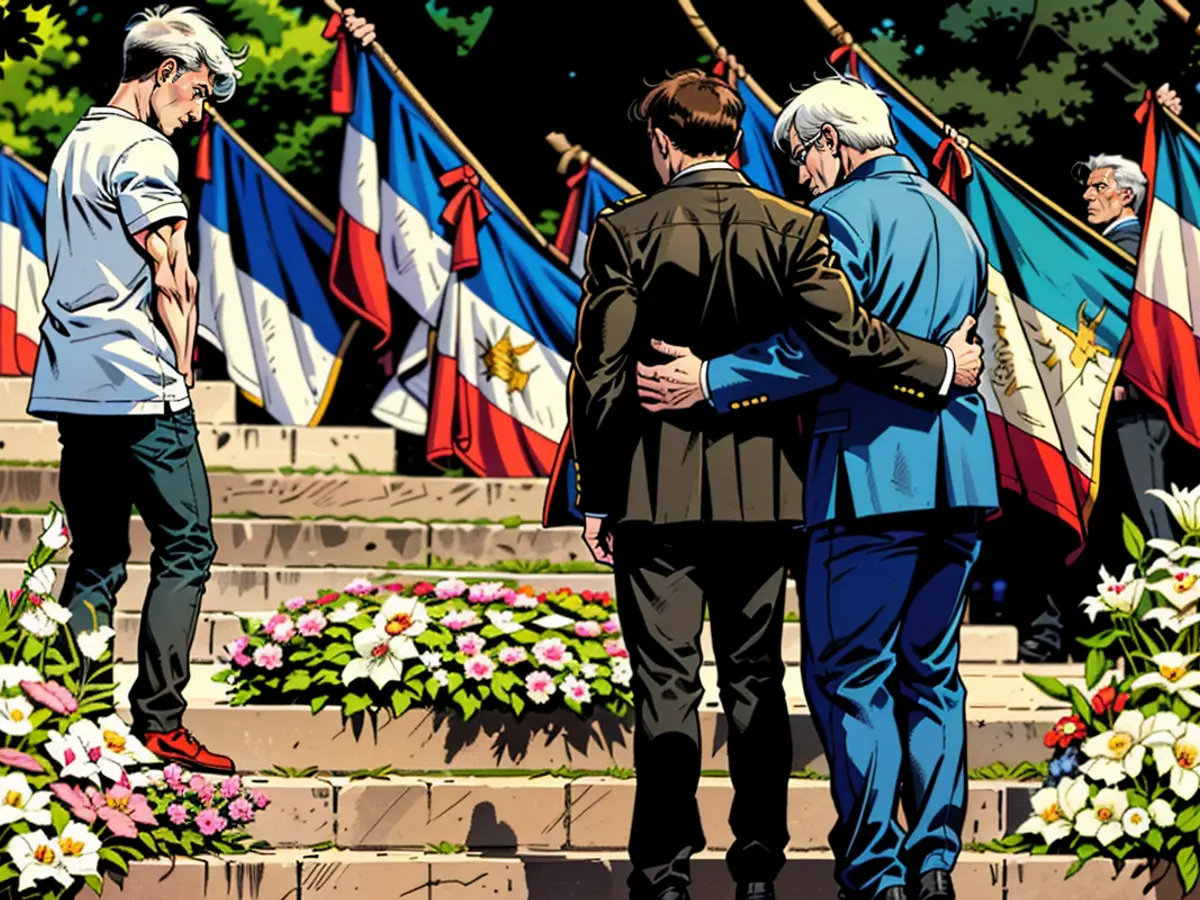Steinmeier cautions against nationalism during remembrance of SS atrocity in France
"Don't forget the amazing feat of mending relationships that the European Union has accomplished," urged the Federal President, who made a trip to France for the event marking the 80th anniversary of a tragedy. "Let's not lose sight of the significance of freedom, our freedom, for which so many life-changing sacrifices were made."
Steinmeier delivered his entire talk in French. The Federal President apologized for the poor legal action against the Oradour massacre, during which an entire village got annihilated on June 10, 1944. Around 643 people lost their lives, only a handful survived.
"I want to admit my embarrassment that the perpetrators have escaped justice, that the most horrific crimes have not been avenged," said Steinmeier. "Once more, my country has incurred sin here."
The bond between Oradour and Germany had been strained for a long time because none of the offenders were ever accused. The responsible SS commander Heinrich Lammerding, who had been sentenced to death in France in absentia, wasn't extradited or tried in Germany.
Steinmeier appreciated the idea of a "friendship treaty" between the central French town of Oradour and the Bavarian Hersbruck. "Bold individuals are starting unique reconciliation tasks," he highlighted. Hersbruck had been a part of the Nazi extermination camp Flossenbürg.
Macron also linked the site of the massacre to Europe today. "We need to find the power of healing and the energy for the European project in the ashes of Oradour," said the French president.
At the commemoration ceremony, a French descendant of one of the massacre survivors and a German descendant of a leading SS soldier were present. "It's crucial for us to be here today," said Karin Eidenroth, granddaughter of SS soldier Adolf Heinrich, glancing at the outcome of the recent European election. "It's striking here what threat comes from right-wing extremist beliefs."
The SS Panzer Division "Das Reich" had massacred most of the villagers in the central French town of Oradour on June 10, 1944, and nearly destroyed the village completely. Approximately 350 women and children were trapped in the village church by the SS forces and killed there with poison gas, hand grenades, and machine guns.
The ruins of the village are still preserved as a tribute, but they're being damaged due to deterioration. The last of the very few survivors, Robert Hébras, passed away in February 2023 at the age of 97.
This is the first time a Federal President visited the site of the massacre on its anniversary. In 2013, the then Federal President Joachim Gauck went to Oradour-sur-Glane during a foreign visit as the primary German official to do so.
Macron had already remembered the victims of the massacre on June 9, 2023, before Steinmeier's visit. In the nearby Tulle, SS soldiers had hung 99 civilians on streetlights and balconies and deported 149 others to Dachau.
Read also:
- Steinmeier's caution against nationalism echoes concerns in Europe, as the continent grapples with a resurgence of such sentiments following the recent European elections.
- The French village of Oradour, which was the site of a horrific SS massacre in 1944, serves as a stark reminder of the devastating consequences of nationalism and extremism in Europe.
- The massacre in Oradour is a grim chapter in Germany's history, and the country's leaders have been actively involved in commemorating the tragedy and promoting reconciliation with Europe.
- The Hersbruck-Oradour "friendship treaty" is a significant step in promoting healing and reconciliation between Europe and Germany, as both are deeply affected by the past and current shifts to the right in some parts of the continent.
- France, under President Emmanuel Macron, has been at the forefront of advocating for the European project and its importance in overcoming the harsh realities of history, such as the Oradour massacre.
- The presence of a French descendant of a massacre survivor and a German descendant of an SS soldier during the commemoration ceremony underscores the need for understanding and reconciliation within European families and societies.
- Steinmeier's visit to Oradour on its 80th anniversary highlights the EU's role in fostering unity and remembering shared histories, particularly in a context where the European project is being challenged by rising nationalism and right-wing extremism.







